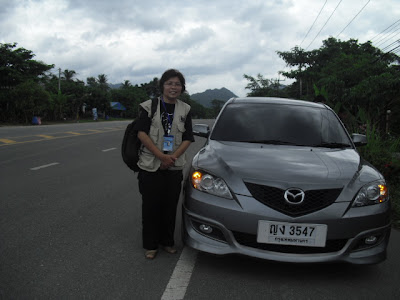Kalau peta perpolitikan Indonesia dikuasai oleh orang Jawa, ya wajar-wajar saja. Penduduk Jawa-Madura jumlahnya 50% dari jumlah penduduk Indonesia. Sedangkan pembagian daerah pemilihan dalam pemilu dibentuk berdasarkan jumlah penduduk.
Kita bisa lihat hal tersebut dalam Lampiran UU no.8 tahun 2012 tentang Pemilihan Umum Anggota DPR, DPD dan DPRD yang baru diterbitkan bulan Mei 2012 lalu. Dalam pemilu 2014 nanti, Sumatera akan diwakili oleh 120 orang anggota DPR, Jawa 306, Bali, NTB dan NTT, 32, Kalimantan 35, Sulawesi 47, Maluku dan Papua 20.
Hal ini sudah berlangsung sejak lama, karena populasi di pulau Jawa dan Madura memang padat sejak dulu kala. Sehingga muncul kebijakan bahwa setiap provinsi di Indonesia, meskipun populasinya kecil dan tidak mencukupi bilangan pembagi untuk daerah pemilihan akan diwakili 3 orang. Karena sistem pemilu Indonesia adalah sistem keterwakilan proporsional. Bisa dilihat dalam pasal 22 ayat (2) UU no. 8/2012.
Solusinya buat daerah: Perbanyaklah jumlah penduduk di daerah Anda masing-masing (jika yang membaca artikel ini adalah orang di provinsi non pulau Jawa-Madura, ya).
1. Dengan memperbanyak jumlah kelahiran (ooopss, jumlah penduduk Indonesia akan ‘meledak’ dong) dan mengurangi jumlah kematian ibu dan bayi.
2. Dengan memindahkan sebagian orang yang berada di pulau Jawa ke daerah atau provinsi non pulau Jawa.
Panggil putra daerah yang sudah sekolah dan punya pengalaman bekerja di pulau Jawa atau bahkan luar negeri untuk membangun daerah.
Undang orang-orang non putra daerah yang selama ini tinggal di pulau Jawa. Mengundang orang tentu mesti ada ‘jamuannya’ kan. Galilah potensi wilayah provinsi masing-masing. Itulah ‘perjamuan’ dan ‘jualan’ daerah Anda.
Indonesia tidak cuma Jakarta, Bandung, Surabaya, Jogja, Medan, Makasar. Apa yang sudah dilakukan mantan Gubernur Gorontalo Fadel Muhammad bagus sekali. Beliau men-SWOT daerah Gorontalo dan menemukan kekuatan Gorontalo adalah jagung. Karena itu kebijakan beliau adalah membangu industri jagung dari hulu ke hilir. Selepas beliau menjadi gubernur, saya belum sempat mengecek kelangsungan industri jagung ini.
Jerman sebagai negara maju, juga tidak menumpukan kekuatan ekonominya pada kota-kota yang selama ini dikenal di Indonesia. Berlin jelas sebagai ibukota negara memiliki daya tarik sendiri menarik urbanisasi. Tapi kota lain juga punya daya tarik dan magnet tersendiri.
Frankfurt adalah kota industri keuangan. Semua lembaga keuangan ternama di dunia dipastikan memiliki kantor perwakilan utama di kota ini. Siapa yang menyangka bahwa Hamburg selain terkenal sebagai salah satu kota pelabuhan terbesar di dunia, juga dikenal sebagai ‚Sillicon of Valley‘-nya Jerman. Karena itulah pak Habibie, mantan presiden Indonesia bertempat tinggal di Hamburg, karena dekat dengan komunitasnya sebagai ilmuwan peneliti teknologi.
Siapa yang tidak kenal dengan Siemens? Pabrik-pabrik Siemens berada di kota kecil yang tidak terdengar oleh publik Indonesia. Dengan juga dengan pabrik-pabrik mobil semacam Opel dan BMW. Braunschweig adalah kota industri penerbangan. Urbanisasi tetap ada di Jerman, tetapi bisa ditekan. Toh, bekerja di kota kecil sama saja. Tentu saja dibarengi dengan fasilitas yang cukup sehingga gak beda-beda jauh dengan fasilitas di kota.
 |
| Saya di salah satu jalan desa di provinsi Phatthalung, Thailand Selatan, sehabis mewawancara seorang kandidat di wilayah ini. |
Thailand memiliki infra struktur yang cukup bagus. Ketika tahun 2011 saya memantau pemilu parlemen di sana, saya menyusuri kota-kota dan desa-desa di 4 provinsi di Thailand Selatan (Trang, Songkhla, Pattalung dan Satun) untuk mewawancarai berbagai stakeholder kepemiluan dan menghadiri kampanye. Jalanan mulus dan lebar yang bisa dilalui mobil membentang masuk ke desa-desa, memudahkan rakyat menjual hasil panen perkebunan mereka. Hiburan sekali-sekali ke kota dan menjadi tidak jauh. Listrik, komputer, laptop dan internet bukan barang aneh bagi penduduk di sana.
3. Ini usulan yang paling ekstrim. Kawinilah orang pulau Jawa, lalu bawa dia ke daerah Anda. Jangan sebaliknya ya, Anda justru pindah ke pulau Jawa, menuh-menuhin pulau Jawa yang sudah sesak, he he he.
Penulis adalah : Kepala Departemen Hubungan Luar Negeri KIPP Indonesia (Komite Independen Pemantau Pemilu. Pemantau pemilu Internasional di beberapa negara di Asia.
Tulisan ini dimuat juga di Kompasiana.




